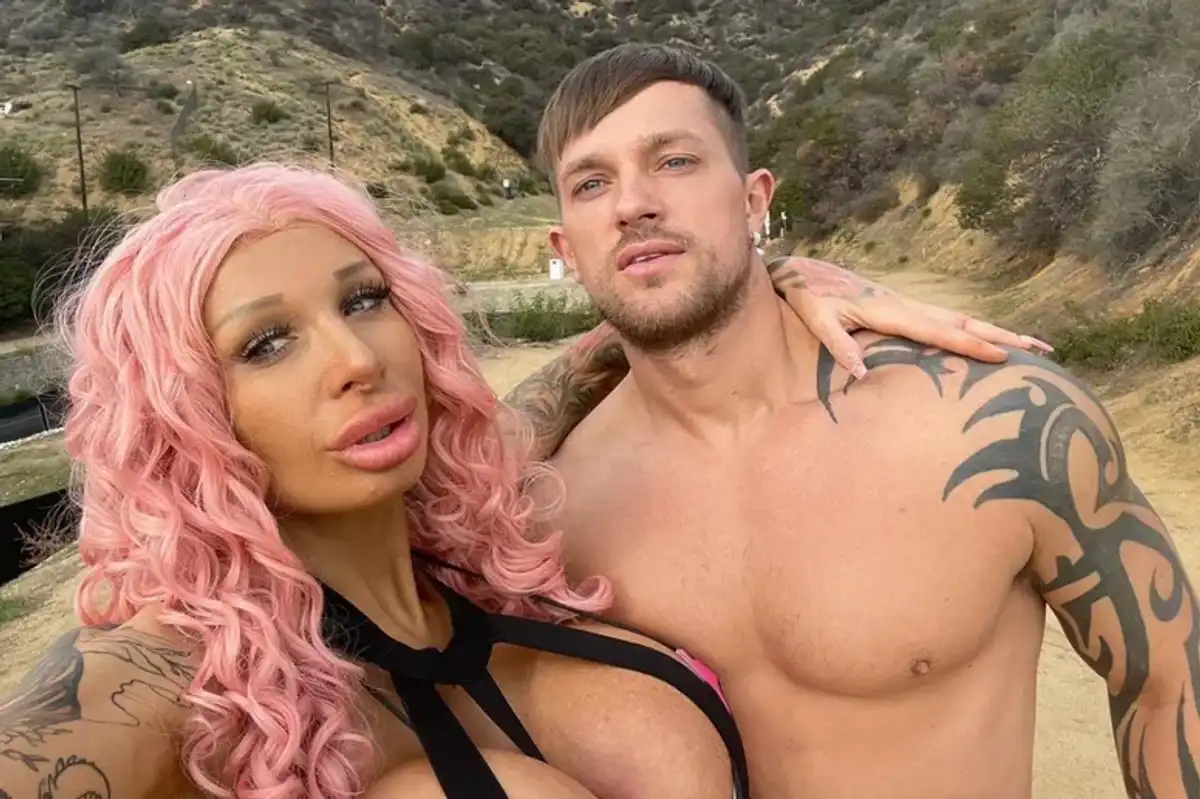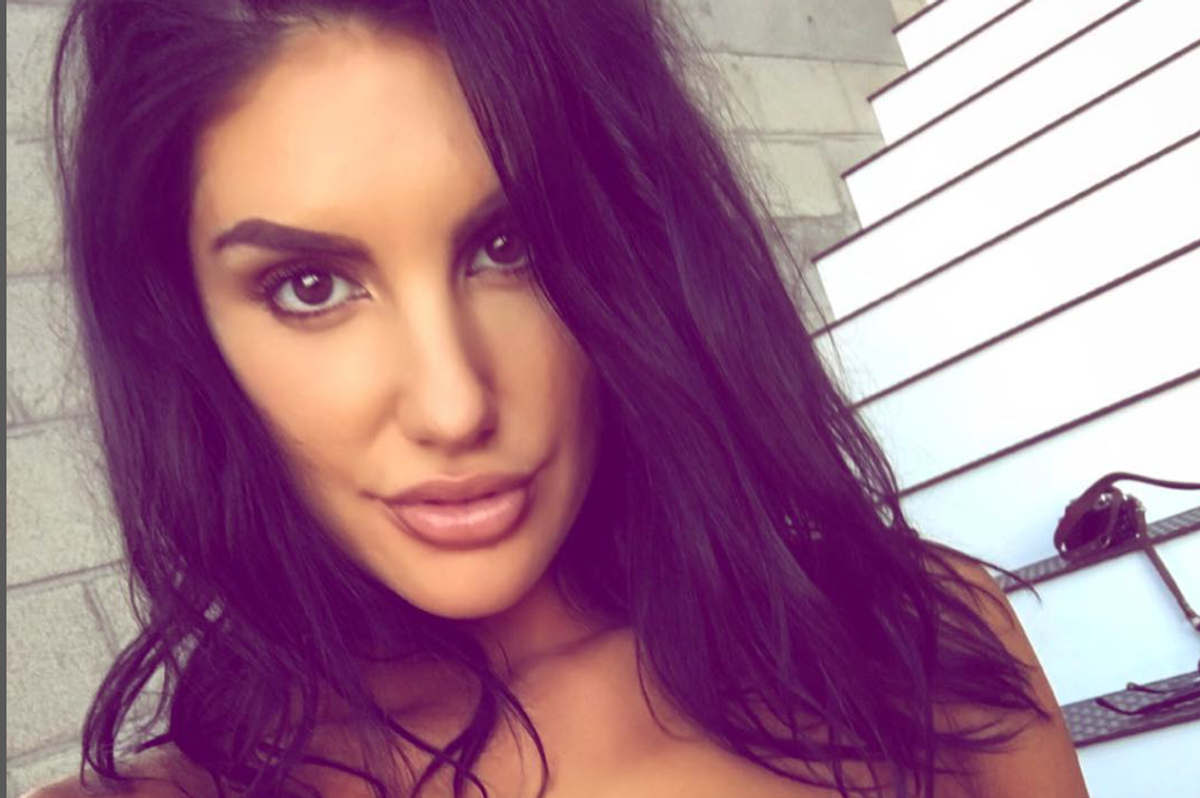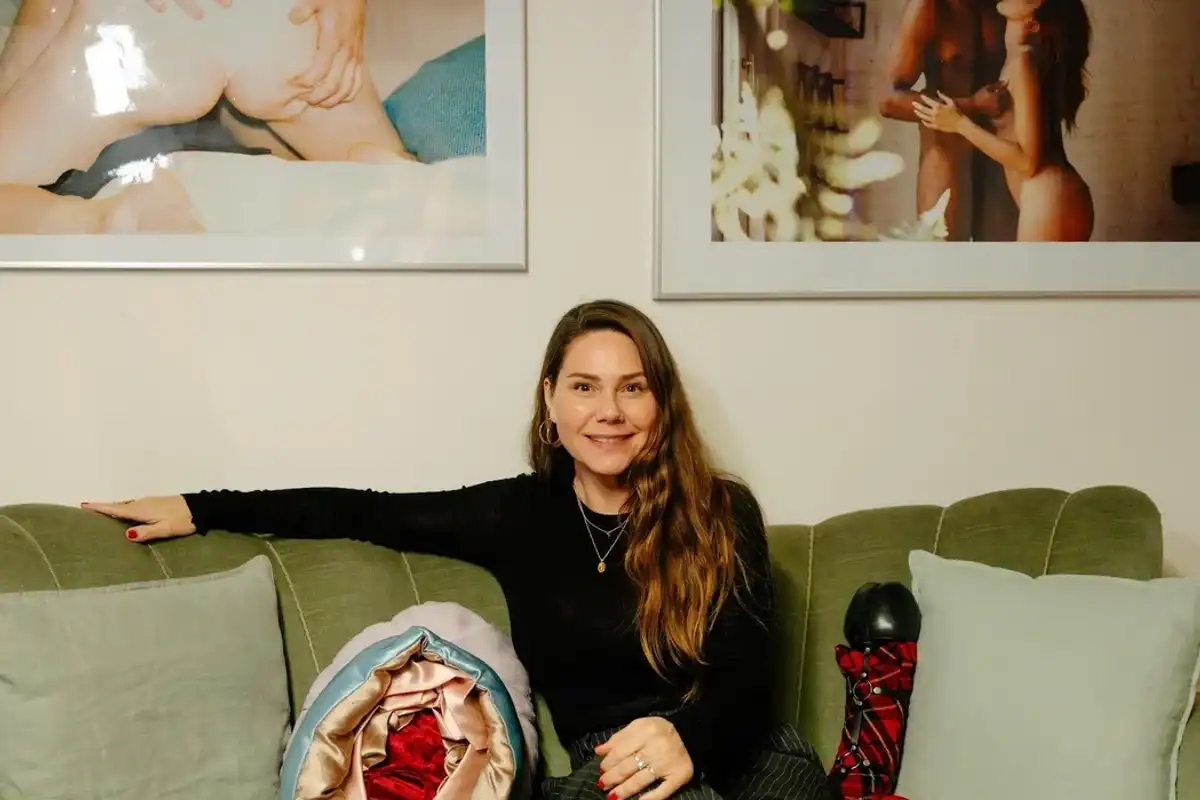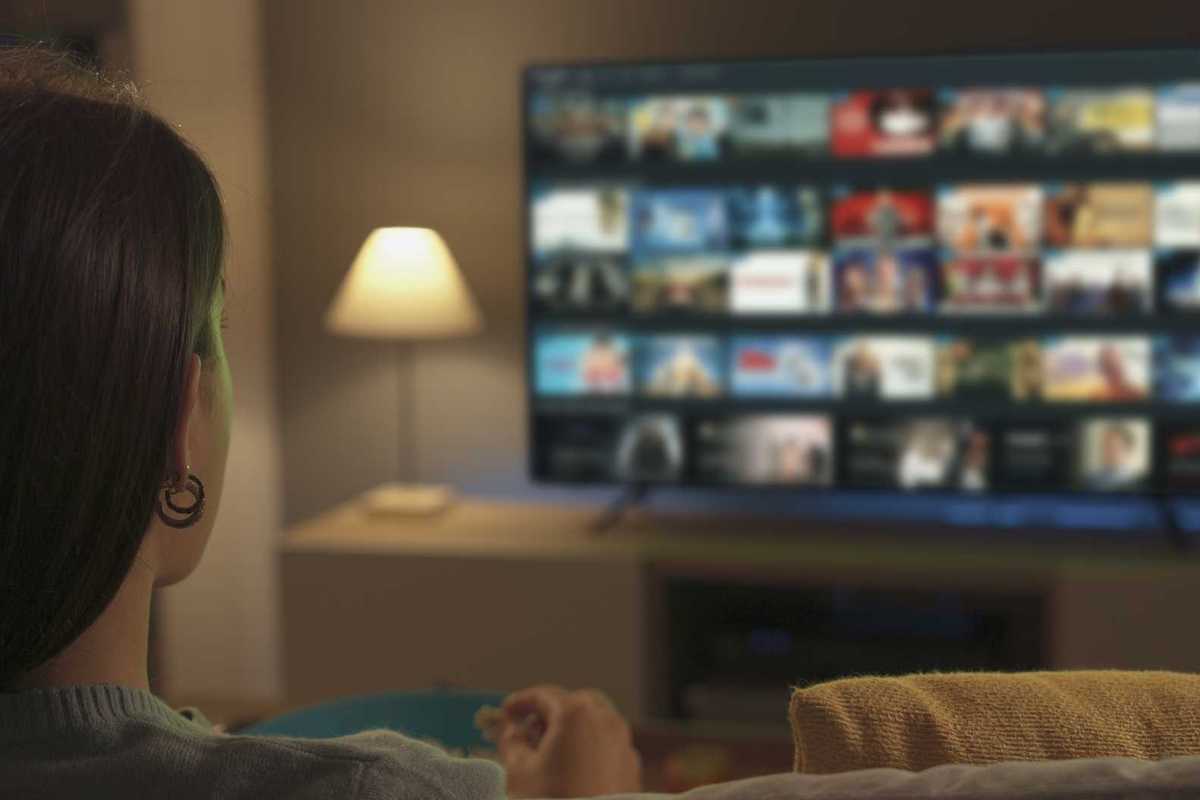Emily Willis is described by her loved-ones as "the light in the lives of all who know her".
And yet, the adult film star is currently lying comatose in a hospital bed, fighting for her own life.
The 25-year-old was rushed to hospital early last month after reportedly suffering a cardiac arrest while being treated at a rehabilitation unit in Malibu, California.
Her family have since insisted in a statement that she "was receiving the treatment and help she needed at the time of the incident to overcome her struggles."
Yet, despite having "the potential to achieve her dreams", she may never get the chance to.
And what's perhaps most tragic in of all of this is that Emily isn't alone.
Her name joins an ever-growing list of adult movie actors who have struggled with substance abuse and mental health issues over recent years, with a shocking number taking their own lives.
So why are so many young performers falling victim to depression and addiction? And what – if anything – is being done to support them?
Is there a mental health crisis in porn?
Five porn actresses died by suicide within three months between late 2017 and early 2018.
Since then, the community has mourned another string of stars, including Jesse Jane, Sophie Anderson, Kagney Linn Carter and, most recently, Sophia Leone.
In an interview with CBS back in 2019, popular performer Riley Reyes explained that part of the problem lies in the nature of the work and who it attracts.
"The truth is I do find that there are a lot of people in the sex industry who are living on the margins in some way, that includes mental illness, that includes people with chronic pain, chronic illnesses," she said.
"So if you have panic attacks, or chronic pain flare-ups, you could easily structure a schedule performing in adult films, or a schedule escorting around your pain, or around your depression in a way that is workable for you … I think in some ways this flexible job can be a haven for us."
Indeed, several actors, including Anderson and August Ames, who killed herself in December 2017, have been open about their struggles with severe mental health problems.

Speaking to the porn producer and podcaster Holly Randall three months before her death, Ames opened up about her diagnosis with bipolar and multiple personality disorder.
She alleged that, as a child, she’d been subjected to sexual abuse at the hands of a close family member, and ended up spending years in a home because her father refused to believe her.
Ames said that the dark cloud of her past continued to loom heavy over her, admitting to Randall: “I have to keep myself occupied or else I'll start thinking about all of that s**t, and then I fall into a depression.”
However, blue movie icon Amber Lynn, who has been in the game for four decades, thinks there are other insidious forces at play – insisting that the adult industry has never been a more trying place to work.
Also speaking to CBS, the 59-year-old said that the X-rated world has changed dramatically since the 1980s, ‘90s and even 2000s.
This is, she suggested, largely down to “the bullying and trolling that goes on” now.
“Back in the day, before the internet, if you had a fan who didn't like you, they couldn't access you in real-time and start tearing you down, belittling you or making fun of you,” she pointed out.
Adult film star raises concerns over the state of porn performers' mental healthwww.youtube.com
Now, however, stars are inundated with abuse via social media.
The acclaimed erotic movie director, Erika Lust, echoed this concern. She told indy100: “The hardest thing for adult film actors to deal with in terms of mental health is the stigma that they carry outside the studios when living their everyday lives.”
Lust, who is recognised as one of the pioneers of ethical, feminist porn, noted that part of the problem is that professional therapists also carry “a lot of that stigma into their sessions”, which can leave sex workers “feeling helpless”.
August Ames, who was 23 when she took her own life, would have vouched for this, having deplored the treatment she received at the hands of therapists.
Speaking to Randall, the Canadian star said she would contact psychologists and counsellors but would hit a brick wall when they probed her on her profession.
“I’d feel like they’d be like, ‘Oh, that's the whole reason why you are the way you are.’ And then I would just get turned off,” she admitted.

Sadly, the prejudice faced by adult entertainers extends even further, affecting everything from healthcare to accommodation.
In her interview with CBS, Reyes stressed: "It's very hard to find a gynaecologist with whom you can be honest because most gynaecologists will heavily stigmatise any woman they see as promiscuous.
"It's really hard to find someone who will provide you with the care that you want and need without being judgemental toward you and your job."
Moreover, sex workers aren’t a protected class under US law.
As of 2014, landlords in Oakland, California are required to evict sex workers from their residences or face penalties. And major banks including Bank of America and Chase have reportedly denied services to porn actors or closed their accounts.
What is the adult industry doing to support its performers?
“As in any industry, mental health provisions vary greatly inside the adult cinema scene,” Lust explained. “It really depends on the company, the studio, the people, etc. “
However, she stressed: “It's important for the industry as a whole to prioritise the well-being of performers, to help them to feel safe and comfortable in the workspace and provide supportive resources.”
Key to this, she said, is the introduction of an intimacy coordinator.
These professionals “take care of performers’ mental, emotional, and physical health and safety throughout the filming and ensure that they feel safe to explore their sexuality alone or with one another,” she said.
Still, Lust acknowledged that “if something happens on set”, some actors may not feel comfortable calling it out there and then, which is where external organisations come in.
She said all performers should be provided with contact details for companies like Pineapple Support – a nonprofit that provides low-cost mental health therapy to workers in the adult film industry.
And, in addition, she recommended that filmmakers offer a feedback form that performers can fill in after every shoot so that they can “share the things that worked and the things that didn’t work so that we can be better for future productions.”

Yet, she pointed out that the industry is changing, and that more and more performers are turning to the likes of OnlyFans.
This, she suggested, is a positive thing.
“Platforms specifically tailored for content creation help performers have more independence and safety over their own work,” Lust said.
“This means that they need to rely less on studios and can have a more stable income that, ultimately, will have a positive impact on their own mental health.”
And yet, it’s not clear whether or not online content creators really do benefit from better mental health and quality of life than more classic adult movie stars.
Current research
For a 2022 paper titled ‘What Do We Know About the Mental Health of Porn Performers?’ psychologist Hannes Jark compiled all available evidence on the topic.
He noted that “only three US studies examine the topic and none of them are recent,” suggesting there is a glaring gap in research when it comes to members of this polemic profession.
Still, he pointed out that whilst “existing knowledge on performers’ mental health is inconclusive at best”, it also indicates “significantly poorer mental health and higher prevalence of mental disorders in some, but not others.”
Referring to a 2011 study, which compared the mental health of 137 female performers to 1,773 women of a similar age, Jark noted that the porn actresses were more likely to be clinically depressed, more likely to have experienced rape, poverty or the care system, and more likely to have experienced domestic violence within the past 12 months.
Put simply, the study found significantly worse mental health in performers compared to their non-porn counterparts.
And yet, interestingly, this wasn’t the case for male performers.
A 2012 survey compared the self-reported sexual behaviours, attitudes, self esteem, quality of life (QoL), and drug use of 105 (mostly heterosexual) male porn actors to a matched sample of the same size.
It found that performers reported higher sexual satisfaction, body image, and self-esteem than the control group, leading its authors to conclude that male porn performers were psychologically similar or even healthier than their non-porn peers, although they had tried more kinds of drugs in their lifetime.
And yet, separate studies, conducted in 2012 and 2013 found no evidence of poorer mental health in female performers which, Jark suggested, may have been down to “different strategies” for recruiting participants.
He also noted that no evidence has been gathered regarding self-producing performers who share their content on platforms such as OnlyFans which, as Lust also pointed out, are “completely different circumstances.”

The main issue, Jark stressed, is that research regarding the mental health of porn performers is “scarce and not up to date”.
“The different results point towards a high diversity within the industry regarding both how production companies and agents treat performers, as well as within performers and their reasons to join the profession,” he said.
“While the job may be very fruitful for those with specific personalities and who are open about their work, as well as those who work with legitimate production companies, people – especially women – from low socio-economic backgrounds may be lured into a glamorous-looking life by self-declared agents who act similar to a pimp.
“Such “agents” may exploit inexperienced performers and hold power over them by being the ones who have the contacts within the industry and being able to expose their work to family.
“This is obviously an entirely different situation than that of a young person with a supportive environment deliberately choosing to work in porn,” he added.
“Based on the little evidence available, performing in porn may not be related to mental health at all for some, while for others there is a very strong connection, in which case other moderating factors need to be explored and later leveraged to performers’ advantage through policy.
“Specifically, the question remains whether performing in porn as such is a risk factor for poor mental health, or whether risk factors are almost entirely due to work environment and stigma-related issues, such as online bullying.”
Next steps
Thorough and detailed research is needed, both into whether porn performers do, indeed, suffer from poorer mental health – and how this differs according to gender, etc. – and how to develop interventions that will best support them.
To achieve this, experts need to consult more than just the performers themselves, Jark suggests that other industry workers – including producers, agents and camera personnel – be included, as well as performers’ partners and family members.
“Such detailed information and a clearer picture of the environments performers manoeuvre in – and which factors are directly related to their mental health – could help policymakers in building evidence-based interventions to support performers, improve well-being, and prevent mental illness,” he writes in his paper.
“It further may even make issues visible that require political or judicial changes.
“Research on mental health and well-being with regards to peoples’ profession and workplace has, for good reason, become more and more common,” he concludes.
“It is time for it to be investigated thoroughly for performers in porn.”
If you are experiencing feelings of distress and isolation, or are struggling to cope, The Samaritans offer support; you can speak to someone for free over the phone, in confidence, on 116 123 (UK and ROI), email [email protected], or visit the Samaritans website to find details of your nearest branch.
Sign up for our free Indy100 weekly newsletter
Have your say in our news democracy. Click the upvote icon at the top of the page to help raise this article through the indy100 rankings














